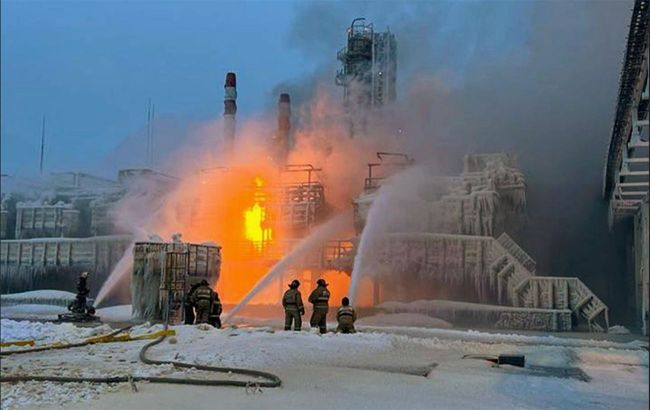Ukrainian attacks disrupt at least 17% of Russia's refinery capacity
 Photo: Ukraine deprives Putin of 17% of oil refining (Getty Images)
Photo: Ukraine deprives Putin of 17% of oil refining (Getty Images)
Ukraine has intensified drone strikes on Russian oil refineries and export infrastructure. The most vital sector of Vladimir Putin’s economy has come under attack, Reuters reports.
According to the media outlet, Kyiv is showing that it is capable of striking back while the United States tries to broker a peace deal.
The attacks have disrupted Russia’s oil refining and exports. Some regions of the country are experiencing gasoline shortages. The strikes came in response to Moscow’s advances on the front line and mass attacks on Ukraine’s energy sector.
Impact on negotiations and economy
Experts believe Kyiv’s actions are intended to raise the stakes in possible peace talks. In this way, Ukraine challenges the narrative that it has supposedly already lost the war after the meeting between Donald Trump and Putin in Alaska.
According to Reuters’ estimates, the attacks hit 10 plants and disabled at least 17% of Russia’s refining capacity. This equals 1.1 million barrels per day.
Exports and seasonal demand
The drone war has led to an increase in crude oil exports, coinciding with Washington’s pressure on China and India to reduce purchases from Russia. The strikes also came at the peak of seasonal demand for gasoline from tourists and farmers.
As early as July, Moscow had tightened restrictions on gasoline exports due to rising domestic demand. After the attacks, fuel shortages worsened in southern Russia, in the occupied territories of Ukraine, and even in the Far East.
In Vladivostok, long lines have formed at gas stations. Authorities attribute the situation to an influx of tourists.
Risks for fuel supplies
According to Sergei Vakulenko, Senior fellow at the Carnegie Russia Eurasia Center, Russian refineries have lost only part of their capacity. However, this could still create problems with domestic fuel supplies.
Russia receives a quarter of its budget revenues from oil and gas exports. These funds have fueled a 25% increase in military spending - to record levels since the Cold War.
Sanctions and military spending
Western sanctions forced Moscow to sell oil at discounts and cut off gas supplies to Europe. But this has not stopped the production of weapons and ammunition.
The war in Ukraine has turned into a war of attrition. Both sides use drones and missiles to strike deep beyond the front line, damaging each other’s economies.
Over the past month, Ukraine has attacked Lukoil’s refinery in Volgograd, Rosneft’s facility in Ryazan, and several sites in the Rostov, Samara, Saratov, and Krasnodar regions.
In addition, Ukraine struck the Druzhba oil pipeline three times, through which Moscow supplies cheap oil to its allies - Hungary, Slovakia, and Belarus.

